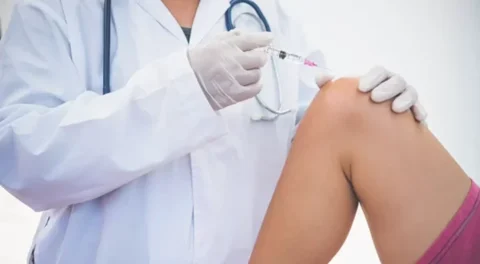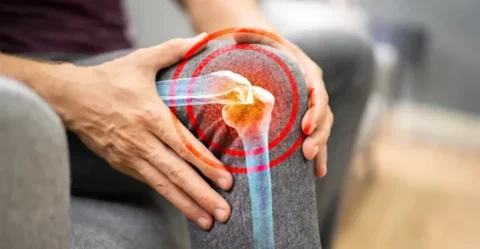For many cosmetic and medical issues, a platelet rich plasma injection seems to be the newest wound healing and skin rejuvenation treatment enjoyed by both patient and practice alike. However, the exact specifics of platelet rich plasma therapy go far beyond the preparation process and injection into the treatment area: it requires extensive preparation and careful application.
With that being said, can you do PRP at home? The accessibility of PRP kits may make this an appealing idea for a patient, but practices should sharply forbid the application of PRP treatment outside a professional setting. Since PRP preparation requires the right equipment and expertise to produce a viable platelet concentration for injection treatment, having an untrained person apply it on themselves can be extremely dangerous.
Why PRP Preparation Should Be Left To The Professionals
A cursory look at PRP preparation makes it seem less complicated than it actually is: a blood sample is withdrawn from the patient, centrifuged to get the red blood cells, white blood cells, and other compounds separated from the platelet, and the resulting serum is reinjected back into the patient.
However, the exact specifics of this process – namely obtaining the right platelet count and ensuring that any blood cell compound in the PRP solution has been properly filtered – can be difficult to perform without the proper equipment and training. Even performing a PRP facial (one of the simpler PRP treatments) at home can result in infection, nerve injury, or even blindness.
Identifying how much blood to remove, how to operate a centrifuge, and how to administer the PRP serum to the treatment area require extensive knowledge of the patient’s condition, the exact PRP concentrate required for the best results, and the technical skill to operate the centrifuge and inject the solution back into the patient. Any home treatments of PRP lack these requirements, which can put the patient’s well-being at risk.
In fact, any procedure that will require injection or extraction should never be performed by a patient, even if they have the advice or oversight of a medical professional. Not only does this violate the integrity of the procedure, but it also makes the attending practitioner liable for any adverse effects the patient may experience because of it.
Since platelet rich plasma therapy is relatively new, there’s no telling that it will always be inaccessible to patients who want to treat simple issues like stretch marks with PRP. However, the technology we have access to today and the degree of training required to do proper and effective PRP therapy makes self-administration of the PRP treatment dangerous for both patients and practices alike.
Alternatives To At-Home PRP Treatments
But this issue will admittedly not stop a patient who’s determined to treat their concerns at home, especially if they’re aesthetic. In these cases, cosmetic and medical practices can suggest the following treatments:
Skin rejuvenation products
Retinol, hyaluronic acid, and other skin rejuvenation products can help manage skin conditions and other concerns with the face and body without the need for invasive methods. These products are easily accessible and are complementary to the more complex methods of treatment, so a patient can support and boost the effects of their primary treatment at home.
Microneedling and derma rollers
Microneedling and dermarolling have rapidly gained popularity as simple yet effective skin rejuvenation treatments that almost anyone can use with enough training and practice. While the usual precautions for using needle-like implements still apply to these treatments, practices can safely recommend them to patients who follow all the necessary precautions while using them.
Special products
For cases like thinning hair or hair loss, special shampoo and other products can help improve the appearance of hair without having to resort to drastic measures like PRP therapy or a hair transplant. Even if these methods are used on the patient, special products can still help them with their results and make them last longer and better.
Keep in mind that these suggestions will vary from patient to patient, and their efficacy will also depend on the exact condition they’re trying to address. However, these are relatively safe options that practices can recommend to their patients instead of performing PRP therapy on themselves at home.
PEP Factor Products: A Better Home Alternative To PRP Injection
For patients who are experiencing hair loss, difficulties with hair growth and hair regrowth, issues like androgenic alopecia, and other issues with skin texture and fine lines, PRP therapy may not always be an accessible form of treatment. But for those who want to treat these issues at home without the hassle of going through collagen induction therapy or microneedling treatment, PEP Factor products can be an excellent alternative.
PEP Factor products contain a mixture of copper peptides, essential nutrients, and fibroblast growth factors. Together, they can help improve the appearance of thinning hair, promote skin rejuvenation, and may even promote collagen production with consistent use. While the exact efficacy will vary from patient to patient, PEP factor products can help replicate some of the effects of PRP treatment without the need for a rigorous preparation process for the serum.
While not as effective as stem cell treatments for skin rejuvenation, PEP factor products work well with other skin rejuvenation therapies like dermal fillers and other cosmetic injectables. Since they both fall into the category of non-invasive beauty treatments, they’re easier to integrate into a patient’s beauty routine without any major disruptions to their lifestyle and healing process. Hyaluronic acid fillers are a particularly good combination, as they can also treat acne scars and wrinkles if the product is also used on the face.
Get High-Quality Medical Tools And Supplies From FACE Medical Supply
Despite the accessibility of the PRP procedure and the relative ease with purchasing PRP kits, cosmetic and medical practices should never advise patients to conduct PRP therapy at home. Given the extensive amount of preparation required for a PRP treatment, any PRP serum should always be prepared and injected by a professional to avoid any complications.
With extensive experience in the demands of cosmetic and medical practices, FACE Medical Supply has consistently helped its clients by providing them a steady and reliable source of medical-grade tools and accessories. With affordable prices that don’t affect their bottom line, we have everything a practice may need for a medical or cosmetic procedure.
For more information about us and our products in stock, contact us today.






